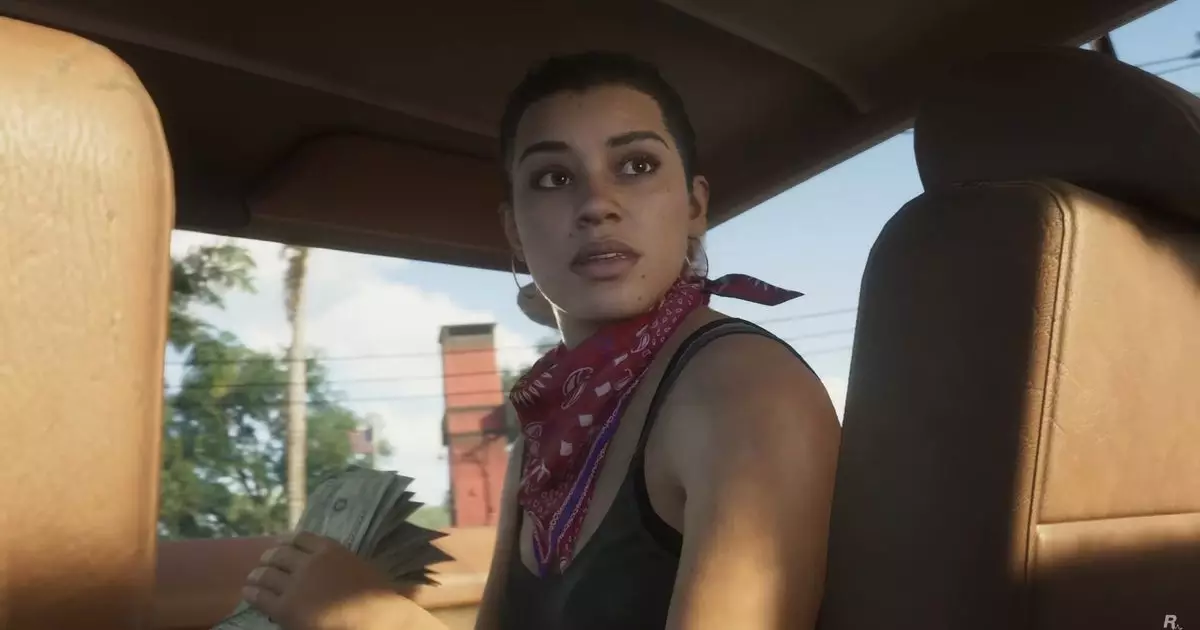In the ever-evolving landscape of video game publishing, the announcement from Take-Two Interactive’s CEO, Strauss Zelnick, regarding the release timeline for Grand Theft Auto 6 has sparked both excitement and skepticism among stakeholders. During a recent quarterly earnings call—often characterized as mandatory updates for potential investors—Zelnick assured that the highly-anticipated title is scheduled to make its debut in the upcoming autumn. This statement was, however, met with a mix of enthusiasm and frustration, particularly among PC gamers who continue to be left without a clear release window.
Zelnick’s repetitive emphasis on the game’s fall release for consoles does little to quell the nagging uncertainty surrounding the PC version. While his confidence in the product is commendable, it reaffirms an ongoing trend in the industry where PC specifications remain an afterthought for early announcements. There’s an undeniable charm in the chaotic excitement of the gaming community, yet this pattern raises questions about transparency and the potential posturing of a transition period into the next generation of consoles.
Historical Context and Consumer Trust
Interestingly, this isn’t the first time Zelnick has offered reassurances about the launch timeline for Grand Theft Auto 6. With previous comments made in November reaffirming his confidence in the scheduling, one might find it perplexing that the narrative appears stagnant, almost as if the circle of anticipation has been drawn without much significant development. This situation resonates with consumers who are accustomed to being fed incremental updates rather than groundbreaking revelations. Investors and gamers alike are left hovering in a web of delayed gratification, contemplating whether the promised timeline will hold firm.
Zelnick’s reference to a substantial 210 million copies of Grand Theft Auto V sold and the continued success of GTA Online reinforces the notion that the developer has a robust revenue stream buoying its operations, potentially cushioning any backlash from a delayed release of the upcoming title. Nevertheless, this strategic financial approach also inadvertently raises concerns about the motives of prioritizing profit over the consumer experience, as was observed through his commentary on “lapsed players” and the need to recapture this demographic.
Market Positioning and Competitive Landscape
The nuances articulated by Zelnick also highlight the competitive nature of the gaming industry. His acknowledgment that competitors are not idle indicates an acute awareness of market dynamics that could affect Take-Two’s performance. As Rockstar Games, the subsidiary responsible for the Grand Theft Auto franchise, is renowned for its perfectionism, it becomes evident that the stakes are particularly high when it comes to meeting consumer expectations.
While fervent fans eagerly await any indication of a PC release date, Zelnick’s assurances register as a double-edged sword. They instill hope but also foster frustration, particularly in an environment where information feels deliberately curated. As we wait for autumn’s arrival, the ongoing speculation surrounding Grand Theft Auto 6 ultimately underscores the delicate balance between corporate strategy and consumer engagement in a realm where timing can make or break the success of a title. Whether the anticipation culminates in a triumphant launch or further delays, one thing remains true: the gaming community will be watching closely.


Leave a Reply